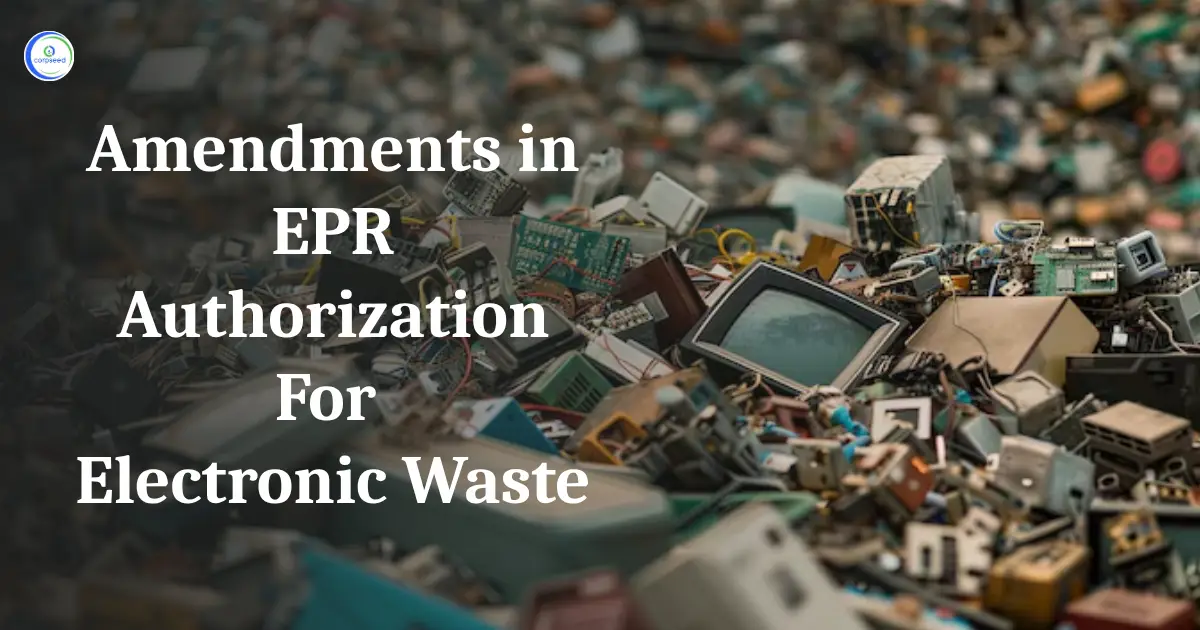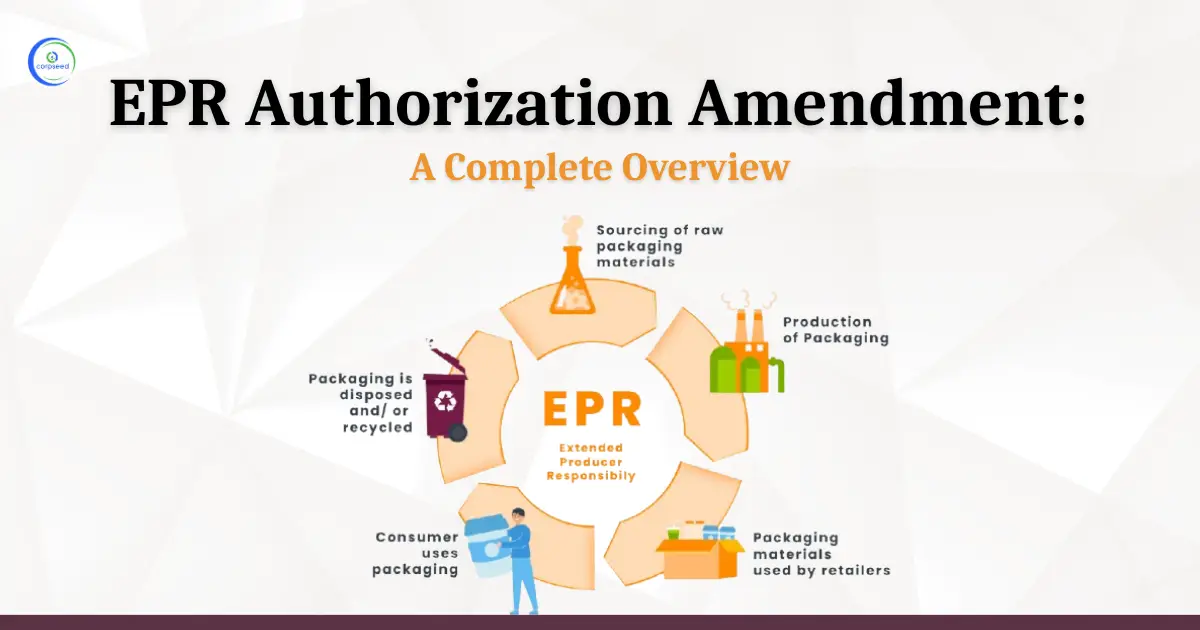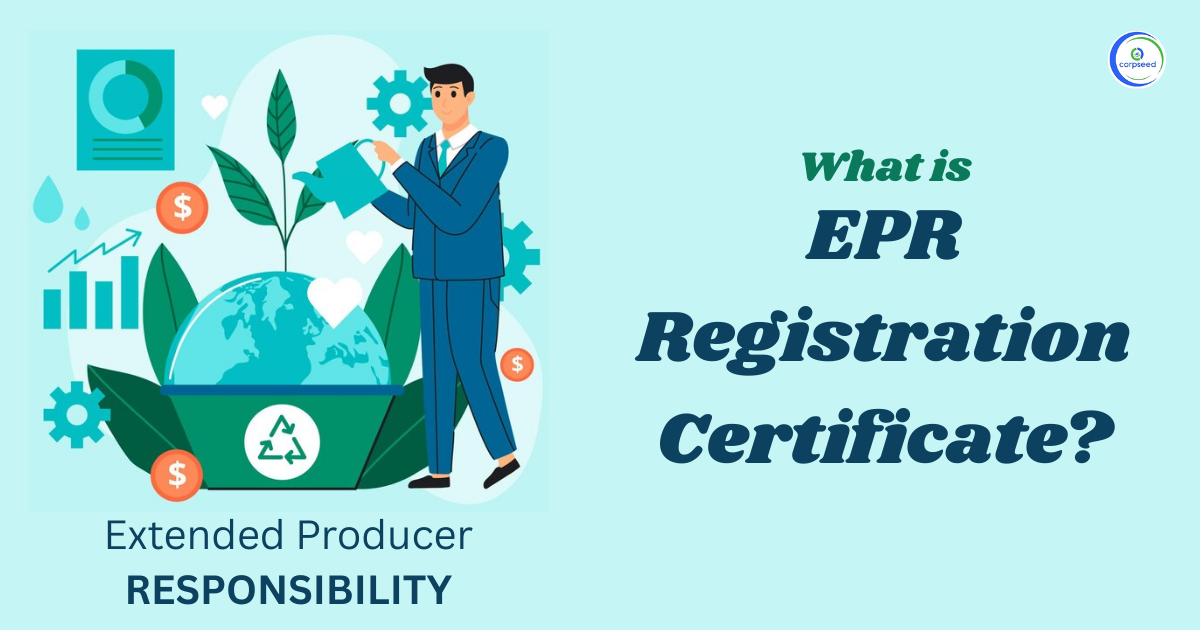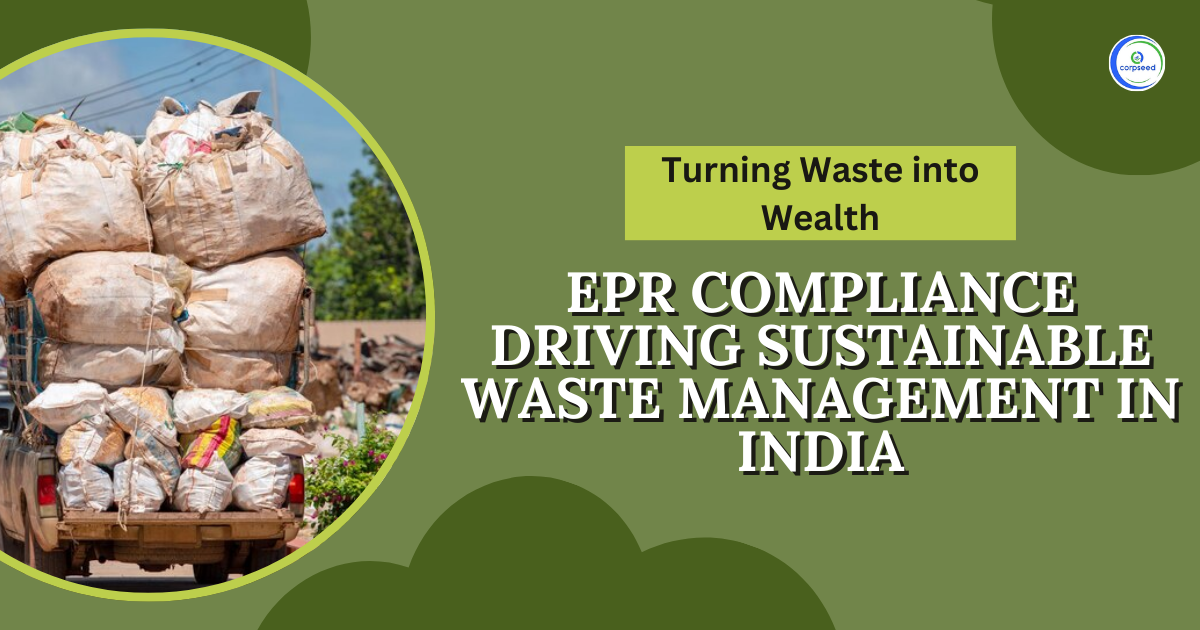CPCB EPR Penalty for Plastic Waste is served to those who do not comply with the waste management rules and notices are served for mismanagement of plastic waste or non-compliance with the obligations incurred onto the producers of plastic waste. Waste management is a huge problem in our country. You may have often encountered unaddressed waste dumps and junkyards. This waste does not only smell bad but also causes various health problems to the population residing in the vicinity. To deal with the air and water pollution caused by various kinds of waste and effluent discharges, the Air and Water Acts prescribed the establishment of a pollution regulatory authority. In furtherance to the enactment of the same Central Pollution Control Board and State Pollution Control Board are established across the country to monitor and regulate pollution in their respective regions.
Table of Contents
--------------Blog Contact Form-------------
Regulatory Provisions for Plastic Waste
Plastic Waste Management Rules are the regulatory framework for the producers, importers, and brand owners of plastic products. These regulations prescribe the stakeholders register on the CPCB portal online for the activities they are undertaking for their business if such activity is classified in the rules or causes the accumulation of plastic waste in any manner. It includes the manufacturing of products that constitute plastic waste at the end of their life cycle, importing such products, or distributing such plastic products in the market under a brand name. Waste processors also need to get the registration but they are not liable for the annual compliance that comes with the registration although some basic responsibilities have to be fulfilled by the waste processors too.
Currently, the Plastic Waste Management Rules of 2016 are in force with the amendments made in subsequent years. The Plastic Waste Management Amendment Rules of 2022 talks about the EPR framework that has to be followed by the stakeholders dealing in plastic waste including plastic waste generators and plastic waste processors.
Annual EPR Compliance for Plastic Waste Generators
The manufacturers, producers, importers, and distributors are often referred to as PIBOs or Waste Generators. Mere registration at the online portal of the Central Pollution Control Board (CPCB) is not sufficient to avoid the penalties that may be imposed by the CPCB. The waste generators also need to fulfill the annual compliance of the plastic waste. These Compliances include the following duties-
- CPCB Registration
- Renewal of the EPR Registration
- Prohibition on dealing with any non-registered business entity
- Furnishing true information at the time of registration
- Preparing of Action Plan to fulfill the annual EPR liability
- The Action Plan has to be separate for different categories of plastic waste
- Category-wise sale and purchase data submission for the plastic packaging
- Avoid any mismatch in the sale purchase data
- Fulfill EPR obligation as calculated based on your sale purchase data
- Develop a waste stream for the collection of plastic packaging waste
- Filing of annual returns on the collected and processed plastic packaging waste against the EPR obligation
Important Dates to Remember
The filing of annual returns has to be completed by the 30th of June of the following financial year. For the financial year 2023-2024, the last date for the submission of annual returns will be 30 June 2024. On this date, the data for the period of 1 April 2023 to 31 March 2024 has to be uploaded to the online portal managed by the Central Pollution Control Board. Often the dates are extended to give a last chance for the producers, importers, and brand owners to file the returns if they have not done so yet.
CPCB EPR Penalties for Plastic Waste
The Central Pollution Control Board (CPCB) monitors various activities relating to plastic waste by the waste generators as well as the waste processors. The data regarding the generation of waste, transaction of waste, and final processing of the waste is uploaded to the CPCB online portal by the stakeholders which is further scrutinised by the officials of CPCB. If any mismatch is found between the transactions submitted by the producers, manufacturers, importers, brand owners, and recyclers, the CPCB can impose a penalty on the party at fault who has submitted false information on the portal. In the following incidents, the CPCB can impose EPR penalties for plastic waste-
- Furnishing false information at the time of registration
- EPR obligation fulfillment data mismatch
- Non-fulfilment of EPR liability
- Violation of any rule of plastic waste management rules
The penalty is levied in the form of environmental compensation from the offender and a notice is served for the halting of operations in their unit if they do not comply with the rules. Environment Compensation is a kind of fine that is levied on the producers, importers, and brand owners for the purpose of improving the quality of the environment and preventing environmental pollution. CPCB collects environmental compensation by the business established in multiple states, otherwise, the respective SPCB and PCC collect it within their jurisdiction.
How to Manage CPCB EPR Penalties for Plastic Waste
You need to fulfill the EPR obligations as soon as possible to avoid any penalties but in case you miss the deadline, you need to complete the EPR target in the next financial year. The obligation of Extended Producer Responsibility (EPR) is carried forward to next year. If the EPR obligations are met within 3 consecutive years, the producers, importers, and brand owners are eligible for the return of compensation. The compensation is returned to them according to the following scheme-
- Seventy-five percent, if the obligations are fulfilled in the first year
- Sixty percent, if the obligations are fulfilled in the second year
- Forty percent, if the obligations are fulfilled in the third year
- No return shall be made if the obligations are not fulfilled after three years
The producers, importers, and brand owners can get in touch with corpseed to manage the penalties incurred due to non-fulfillment of EPR liabilities. We assist you in fulfilling your EPR liability through our vast network of plastic waste recycler. We provide EPR Certificate from plastic waste recyclers at affordable rates after due negotiation. This way you can complete the EPR target and avoid the penalties.
How to Manage CPCB Notices regarding EPR Compliance for Plastic Waste?
You may receive notices from the Central Pollution Control Board (CPCB) in case you do not fulfill the compliance as mentioned in the plastic waste management rules or in case of violation of any other rule therein. Through these notices, the CPCB may ask you to perform some duty, abstain from doing some exercise, or show cause for the activity taking place on your premises. In all cases, you need to reply to the notice carefully and before the deadline to avoid any further inconvenience. We at corpseed, provide you with legal support to deal with such notices. Our team has a lot of experience in dealing with the same EPR-related matters. We’ll provide you with apt consultation for any act that may be in contravention of the procedures established by law or the guidelines of the Central Pollution Control Board.
Conclusion
To sum it up, we can say that notices and penalties incurred on the producers, manufacturers, and importers may prove to be detrimental to the businesses. Such impediments shall be avoided in any case. You should be in touch with a competent consultation firm like corpseed and get assistance for the CPCB EPR penalties or notices for plastic waste management. Waste management rules are enacted for the betterment of our environment which further results in better public health and safety. Compliance with the same is critical for the climate and population. If the waste generators and waste processors come together for the good of society, the waste stream will become more efficient than ever and the fulfillment of the EPR target will become a cakewalk.
This portion of the site is for informational purposes only. The content is not legal advice. The statements and opinions are the expression of author, not corpseed, and have not been evaluated by corpseed for accuracy, completeness, or changes in the law.
BOOK A FREE CONSULTATION
Get help from an experienced legal adviser. Schedule your consultation at a time that works for you and it's absolutely FREE.





.webp)



